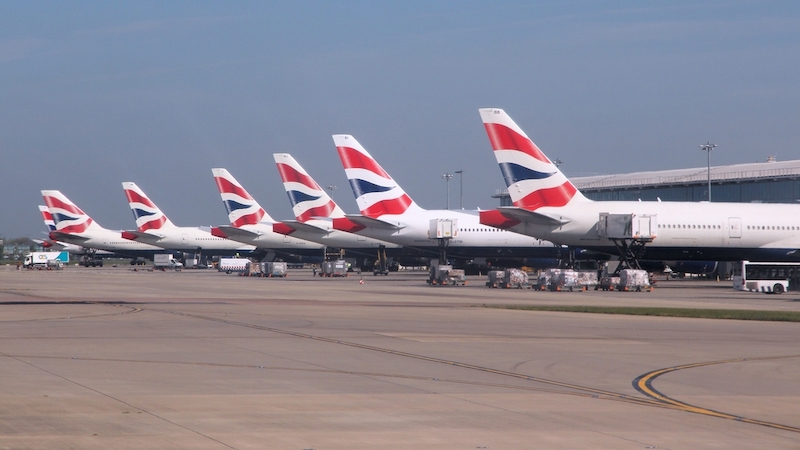The UK Supreme Court ruled on Wednesday that Heathrow would not be banned from building a third runway, following a historic court case between climate campaigners and Europe’s busiest airport.
Plans for a third runway had stalled after the Court of Appeal ruled in February that the expansion was unlawful because, among other reasons, it failed to consider the Paris Agreement on climate change.
The Supreme Court overturned the ban and ruled that Heathrow’s expansion strategy was not illegal, stating that the Paris Agreement does not qualify as UK government policy.
Tim Crosland, a lawyer at Plan B, which brought the case along with Friends of the Earth, described it as a “really dreadful ruling”.
“We have so many documents from the UK government saying that the Paris Agreement is the lynchpin of policy on climate change and that we were the ones that were instrumental in securing it,” he told Climate Home.
In his anger at the verdict, Crosland broke an embargo to reveal the outcome on Tuesday, at risk of being held in contempt of court.
EU urged to address aviation’s full climate impact, including non-CO2 emissions
Campaigners plan to appeal the ruling in the European Court of Human Rights in Strasbourg, where they will argue that increasing aviation emissions is inconsistent with the right to life.
Despite the ruling, Heathrow still faces major obstacles to carry out its expansion plans. The airport may now seek planning permission, but could struggle to convince a public enquiry that increasing aviation demand is compatible with the UK’s 2050 net zero target, campaigners say.
“This judgment is no ‘green light’ for expansion. With ever stronger climate policy commitments that Heathrow must meet, it remains unlikely it will ever get planning permission for the third runway,” said Will Rundle, head of legal at Friends of the Earth.
The Climate Change Committee (CCC) advised this month that if the UK is to meet its 2050 net zero goal, it will have to reduce its overall aviation emissions. There is no net airport growth in its net zero scenario, meaning Heathrow expansion would have to be offset by capacity reductions elsewhere.
“Heathrow expansion means 40 million tonnes of carbon dioxide, just from UK aviation, by 2050. They have to explain how that is consistent with the UK 2050 net zero target,” said Crosland.
Aviation is likely to be the UK’s highest emitting sector by 2050, as it is hard to decarbonise, according to the CCC.
Climate news in your inbox? Sign up here
Heathrow emits around 19 million tonnes of CO2 a year, more than half of UK aviation emissions. A third runway would add a projected 9 million tonnes to the airport’s total annual CO2 output.
Aviation demand projections have been thrown into uncertainty by the impact of the coronavirus pandemic, which forced airline to ground planes for much of 2020.
Without political will, the expansion plans are unlikely to happen, Friends of the Earth previously told Climate Home. Prime minister Boris Johnson, whose constituency is close to Heathrow, has been an outspoken critic of a third runway in the past.
John Sauven, executive director of Greenpeace UK, said in a statement: “Now the ball is in the government’s court, it’s hard to imagine Boris Johnson wanting to resurrect a project that makes no business or environmental sense. With a UK-hosted climate summit just a year away, the government should draw a line under this sorry saga.”
Sauven called for a frequent flyer levy to curb demand and investment in broadband to encourage video conferencing instead of business flights.
A spokesperson for Heathrow said: “Heathrow airport has already committed to net zero and this ruling recognises the robust planning process that will require us to prove expansion is compliant with the UK’s climate change obligations, including the Paris Climate Agreement, before construction can begin.”
